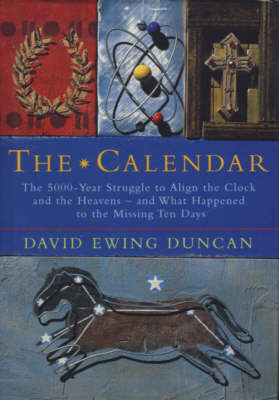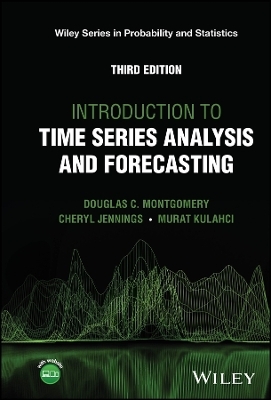
The Calendar
The 5000-year Struggle to Align the Clock and the Heavens, and What Happened to the Missing Ten Days
Seiten
1998
Fourth Estate Ltd (Verlag)
978-1-85702-721-1 (ISBN)
Fourth Estate Ltd (Verlag)
978-1-85702-721-1 (ISBN)
- Titel ist leider vergriffen;
keine Neuauflage - Artikel merken
The story of the creation of the Western calendar - a story of emperors and popes, mathematicians and monks, and the growth of scientific calculation. The book links politics and religion, astronomy and mathematics, and Cleopatra and Stephen Hawking.
Measuring the daily and yearly cycle of the cosmos has never been entirely straightforward. The year 2000 is alternatively the year 2544 (Buddhist), 6236 (Ancient Egyptian), 5761 (Jewish) or simply the Year of the Dragon (Chinese). The story of the creation of the Western calendar, which is related in this book, is a story of emperors and popes, mathematicians and monks, and the growth of scientific calculation to the point where, bizarrely, our measurement of time by atomic pulses is now more accurate than time itself: the Earth is an elderly lady and slightly eccentric - she loses half a second a century. Days have been invented (Julius Caesar needed an extra 80 days in 46BC), lost (Pope Gregory XIII ditched ten days in 1582) and moved (because Julius Caesar had 31 in his month, Augustus determined that he should have the same, so he pinched one from February). Published with the world under threat from chaos arising from the expiry of computer dates after 31st December 1999, this study links politics and religion, astronomy and mathematics, and Cleopatra and Stephen Hawking.
Measuring the daily and yearly cycle of the cosmos has never been entirely straightforward. The year 2000 is alternatively the year 2544 (Buddhist), 6236 (Ancient Egyptian), 5761 (Jewish) or simply the Year of the Dragon (Chinese). The story of the creation of the Western calendar, which is related in this book, is a story of emperors and popes, mathematicians and monks, and the growth of scientific calculation to the point where, bizarrely, our measurement of time by atomic pulses is now more accurate than time itself: the Earth is an elderly lady and slightly eccentric - she loses half a second a century. Days have been invented (Julius Caesar needed an extra 80 days in 46BC), lost (Pope Gregory XIII ditched ten days in 1582) and moved (because Julius Caesar had 31 in his month, Augustus determined that he should have the same, so he pinched one from February). Published with the world under threat from chaos arising from the expiry of computer dates after 31st December 1999, this study links politics and religion, astronomy and mathematics, and Cleopatra and Stephen Hawking.
| Erscheint lt. Verlag | 15.8.1998 |
|---|---|
| Zusatzinfo | line drawings |
| Verlagsort | London |
| Sprache | englisch |
| Maße | 132 x 186 mm |
| Gewicht | 450 g |
| Themenwelt | Geschichte ► Hilfswissenschaften ► Chronologie |
| Naturwissenschaften ► Physik / Astronomie ► Astronomie / Astrophysik | |
| ISBN-10 | 1-85702-721-3 / 1857027213 |
| ISBN-13 | 978-1-85702-721-1 / 9781857027211 |
| Zustand | Neuware |
| Informationen gemäß Produktsicherheitsverordnung (GPSR) | |
| Haben Sie eine Frage zum Produkt? |
Mehr entdecken
aus dem Bereich
aus dem Bereich
Buch | Hardcover (2024)
John Wiley & Sons Inc (Verlag)
CHF 198,90
In 3 Volumes
Buch | Hardcover (2023)
World Scientific Europe Ltd (Verlag)
CHF 589,95

